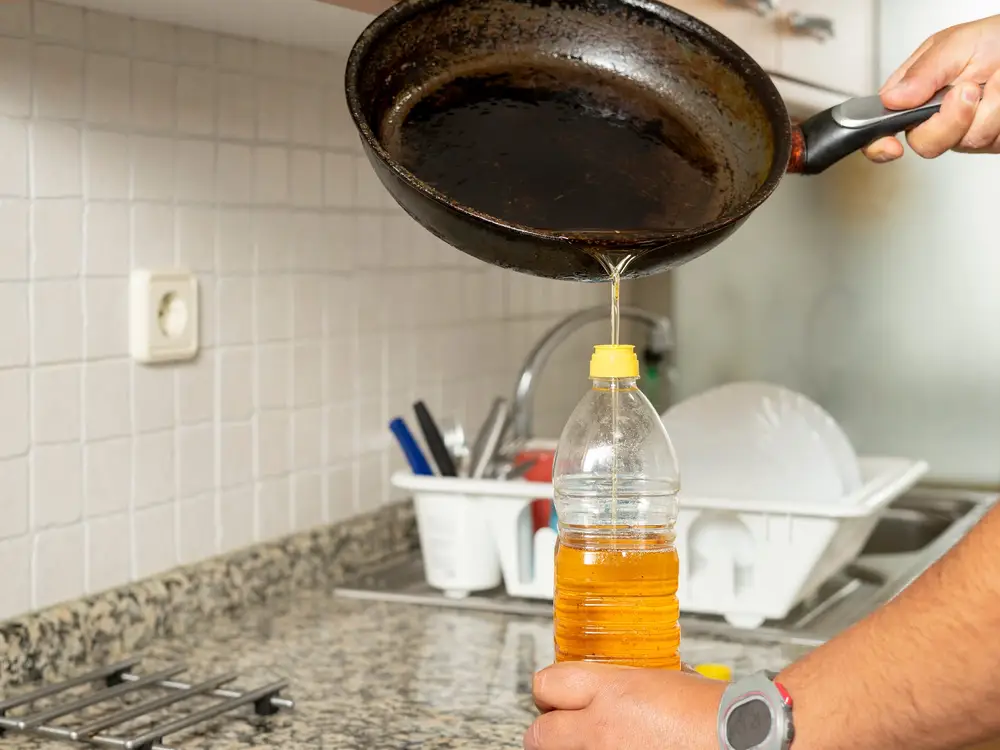NWCPO-16-11754-03
Contact Us: 083-8333-500
NWCPO-16-11754-03
Contact Us: 083-8333-500
Pouring cooking oil down the sink might be tempting, but it's a practice that should be avoided. Fats, oil, and grease can congeal and solidify in pipes, leading to blockages.
Cooking oil, a staple in many kitchens, adds flavor to our favorite dishes. However, when it comes to disposing of used cooking oil, it’s essential to adopt eco-friendly practices.
So, what’s the right way to handle and recycle cooking oil?
First and foremost, let the cooking oil cool down. Once it’s safe to handle, transfer it into a sealable container. If the oil solidifies, consider placing it in the fridge or freezer until it hardens.
Afterward, scoop out the solidified oil and dispose of it in the bin. Alternatively, collect all your used oil in a container and take it to your local recycling center.

However, it’s crucial to double-check the specific rules and regulations at your nearest center. As an additional step, run some kitchen paper around your frying pan after draining to ensure you’ve collected all the oil.
Despite the temptation, pouring cooking oil down the sink is a big no-no. Fats, oil, and grease congeal and solidify, causing blockages in drain pipes and sewers. Even attempts to break down the oil with soap and hot water can be futile, as it may re-solidify and lead to clogs. The consequences extend beyond your home’s plumbing.
Read more about How to Recycling electric Air fresheners, recycle kitchen cabinets and Air fresheners aerosol Recycling and Rubbish Removal.
The oil can decrease oxygen levels in the water, resulting in the asphyxiation of marine life. This unfortunate domino effect can disrupt ecosystems and harm the delicate balance of aquatic environments.
Moreover, the issue of fatbergs adds another layer of concern. Fatbergs are gelatinous lumps that form in waterways when food fat or industrial fat combines. They wreak havoc on sewage systems, posing a challenge for waste management and water treatment facilities.
Embracing recycling practices ensures that used cooking oil is repurposed rather than becoming a threat to our waterways and marine life. So, the next time you’re left wondering how to dispose of cooking oil correctly, remember: recycling is the greener choice.